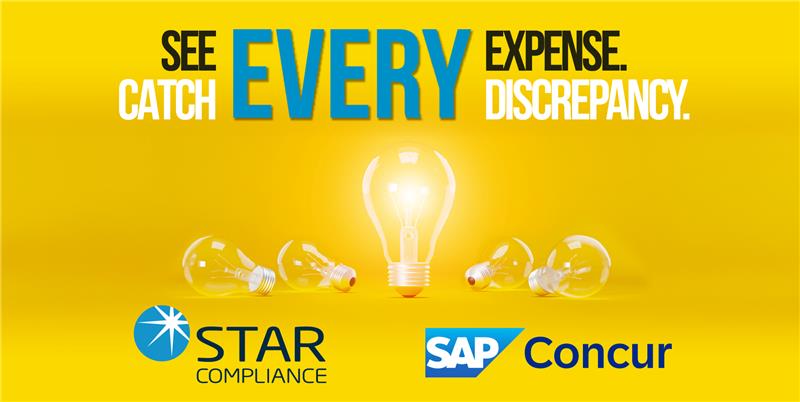Understanding FINRA Rule 3210: Essentials for Financial Professionals
Transparency is a fundamental aspect of the financial services industry, essential for building trust and demonstrating accountability. In this blog post, we explore how FINRA Rule 3210 supports this principle.
The Financial Industry Regulatory Authority’s (FINRA) Rule 3210 is a key regulation that exemplifies the expectation of transparency in financial services. This rule was created with the intention of instilling trust in the industry by providing visibility into potential conflicts of interest and ensuring diligent oversight.
In the vast array of regulations to which financial institutions are held, asking broker-dealers to understand the intricacies of each is a tall order—but education is the best defense against non-compliance. What follows is an in-depth explanation of Rule 3210, its provisions and exemptions, and a list of best practices for ensuring regulatory compliance.
What is FINRA Rule 3210?
FINRA Rule 3210, “Accounts At Other Broker-Dealers and Financial Institutions,” requires that registered representatives (broker-dealers) in the securities industry notify their member firms when they open accounts at other broker-dealers or financial institutions. This rule applies to any account in which a broker-dealer has a beneficial interest, regardless of whether they have trading authority or control over the account.
The purpose of FINRA Rule 3210 is to ensure transparency and accountability within the securities industry. By requiring registered representatives to disclose their outside accounts, member firms can better monitor potential conflicts of interest, unauthorized trading activities, and other compliance issues that may arise. The rule helps to safeguard investors’ interests and maintain the integrity of the financial markets by promoting full disclosure and oversight of representatives’ financial activities. It also helps firms fulfill their supervisory obligations and comply with regulatory requirements.
Rule 3210 was implemented in 2016 and replaced NYSE Rule 407 (“Transactions—Employees of Members, Member Organizations and the Exchange”) and NASD Rule 3050 (“Transactions for or by Associated Persons”).
FINRA Rule 3210 Provisions, Explained
The provisions of Rule 3210 are fairly straightforward, though there are some nuances and exceptions (covered in the next section).
- Disclosure of accounts: Registered representatives must disclose all accounts opened at other broker-dealers or financial institutions in which they have a beneficial interest. This disclosure should happen promptly, typically within 30 days of account opening, and requires submitting requests in writing that include details such as the name of the outside firm, account type, and the representative’s beneficial interest in the account.
- Account approval: Once the member firm receives notification of an outside account, it must review and approve or deny the request. The firm may grant approval if they find the account does not present a conflict of interest or compliance risk. However, if the firm believes the outside account could pose a conflict or compliance issue, it may choose to reject the account.
- Restrictions and monitoring: If a member firm approves an outside account, it may impose certain restrictions or conditions on the broker-dealer’s participation in that account. These restrictions could include limitations on the types of securities traded, the frequency of trading, or the size of transactions. The member firm is also responsible for monitoring the activity in the outside account to ensure compliance with regulatory requirements and firm policies.
- Accounts of immediate family members: Rule 3210 extends beyond the registered representative’s own accounts to include accounts held by immediate family members. Broker-dealers must disclose and seek approval for accounts held by their spouses, parents, children, or other close relatives. The same review and approval process applies to these accounts, and the member firm may impose restrictions or conditions as deemed necessary.
FINRA Rule 3210 Exemptions
According to Section .03, certain types of accounts are exempt from Rule 3210’s provisions. The following are examples of these exceptions:
- Transactions in unit investment trusts (UITs): A registered representative purchases units of a unit investment trust (UIT) that holds a diversified portfolio of municipal bonds. The UIT has a fixed portfolio and a predetermined termination date, and the representative does not have discretionary control over the investments.
- Municipal fund securities as defined under MSRB Rule D-12: A broker-dealer invests a municipal fund security designed to finance qualified higher education, infrastructure development, public transportation, utilities, or healthcare facilities expenses. These types of accounts offer various investment options, but the broker-dealer does not have control over the underlying securities.
- Qualified tuition programs pursuant to Section 529 of the Internal Revenue Code: A broker-dealer opens a 529 college savings plan for their child’s education expenses. The 529 plan allows for tax-advantaged savings and offers a range of investment options, such as mutual funds or exchange-traded funds, but the broker-dealer does not have discretion over the investments.
- Variable contracts or redeemable securities of companies registered under the Investment Company Act: A broker-dealer purchases a variable annuity contract from an insurance company. The contract offers investment options in mutual funds registered under the Investment Company Act of 1940. The broker-dealer may select investment options within the variable annuity, but the insurance company manages the underlying investments.
- Accounts limited to transactions in such securities or monthly investment plan type accounts: A registered representative sets up a monthly investment plan (MIP) account to systematically invest in a specific mutual fund. The representative authorizes periodic contributions to the MIP account, which are used to purchase shares of the mutual fund. They do not engage in discretionary trading and are limited to transactions in the designated mutual fund.
The Risks of FINRA Rule 3210 Non-Compliance
According to FINRA’s 2022 Sanction Guidelines, failure to disclose an account or otherwise comply with Rule 3210 could result in financial penalties ranging from $2,500 to $20,000, a two-year suspension, or permanent barring of the respondent. Other risks of noncompliance include:
- Regulatory sanctions: Sanctions could include fines, censures, suspension or revocation of licenses, and other regulatory penalties enforced by either FINRA or the Securities and Exchange Commission (SEC).
- Legal liability: Investors who suffer financial losses or harm as a result of undisclosed outside accounts or conflicts of interest may pursue civil litigation against the responsible parties, resulting in substantial costs to the broker-dealer.
- Reputational damage: This penalty is the most difficult to control, and may cause the most irreversible damage. Negative publicity surrounding compliance failures, regulatory enforcement actions, or legal disputes can erode investor trust and confidence, leading to loss of clients, business opportunities, and market share.
- Loss of trust: Registered representatives who engage in undisclosed outside business activities or personal trading are prioritizing their own financial interests over those of their clients. This undermines the trust and transparency a client expects from their representative.
- Compliance costs: Remediation efforts, such as implementing enhanced supervisory controls or conducting internal investigations, can be costly and resource-intensive. Additionally, regulatory fines, legal expenses, and potential settlements or judgments can impose financial burdens on firms, affecting profitability and operational efficiency.
How to Maintain FINRA Rule 3210 Compliance
Rule 3210 is just one of many, many regulatory guardrails broker-dealers must comply with to avoid penalties and act in the best interests of their clients. The volume of responsibilities may seem overwhelming—but with the proper training, controls, and compliance infrastructure in place, firms and their employees can operate with utmost integrity.
Follow these best practices to comply with FINRA Rule 3210:
- Establish clear policies and procedures: Clear and well-defined policies provide guidance to employees and help ensure consistent compliance across the organization. Develop comprehensive internal policies and procedures that outline the requirements of FINRA Rule 3210 and detail your firm’s expectations regarding the disclosure of outside accounts. Policies should specify the timeframe for disclosure, approval processes, and any restrictions or monitoring requirements.
- Educate your employees: Ongoing education helps to reinforce compliance awareness and promote a company-wide culture of accountability. Conduct regular training sessions to educate employees—including registered representatives, compliance personnel, and other relevant staff members—on your firm’s policies and expectations regarding outside accounts. Training should cover the requirements of FINRA Rule 3210, the procedures for reporting outside accounts, the importance of disclosure, and the potential consequences of noncompliance.
- Make disclosure part of the onboarding process: By integrating disclosure into new employee onboarding, employees are made aware of their responsibilities from the outset. Provide comprehensive training on your firm’s policies and procedures related to outside accounts and ensure that new hires understand their obligations to disclose any outside accounts promptly.
- Standardize the disclosure process: Standardizing the disclosure of outside accounts will streamline compliance efforts, minimize the administrative burden, avoid potential errors, and make disclosure as easy (and fast) as possible for registered representatives. This process should include clear guidance on how to report outside accounts, designated points of contact for submission, and documentation requirements.
- Routinely review and update internal records: Keeping internal records up-to-date helps demonstrate compliance with regulatory requirements and facilitates effective oversight. Reviews should cover all records of disclosed outside accounts, approval or disapproval decisions, any imposed restrictions or conditions, and ongoing monitoring activities. Conduct periodic audits to verify the accuracy of records and address any discrepancies promptly.
- Centralize data and automate monitoring: By leveraging automated technology, firms can enhance efficiency, improve accuracy, and strengthen compliance controls. An employee conflict of interest software can streamline the collection, review, and tracking of disclosure information, as well as facilitate ongoing monitoring of registered representatives’ outside activities. Automated monitoring can help identify potential red flags or compliance issues more effectively, enabling firms to take proactive measures to address them, while providing employees with decisions in seconds.
A significant challenge broker-dealers experience with Rule 3210 is waiting for their firm’s approval or denial. This process can be especially arduous if the compliance team relies on manual review to process requests. The STAR Platform streamlines this process by automatically approving or denying accounts and escalating requests that need human review. Plus, it’s built with scalability and swift adoption in mind, so your firm won’t have to wait long at all before your employees can submit requests with ease.
To experience this powerful tool in action, request a software demo with a StarCompliance professional today.
The Compliance Officer’s Guide To Employee Compliance

Frequently Asked Questions
Who does FINRA Rule 3210 apply to?
FINRA Rule 3210 applies to registered representatives (broker-dealers) and their member firms within the securities industry. Registered representatives are individuals employed by brokerage firms who are authorized to buy and sell securities (i.e. stocks, bonds, or options) on behalf of clients. Member firms are firms registered with the Financial Industry Regulatory Authority (FINRA), such as brokerage firms or investment banks, that employ registered representatives.
What is the purpose of FINRA Rule 3210?
The purpose of FINRA Rule 3210 is to promote transparency and accountability in the securities industry. It requires registered representatives to disclose to their member firms any accounts they maintain at other broker-dealers or financial institutions in which they have a beneficial interest. The rule aims to facilitate oversight by member firms, helping to identify and mitigate potential conflicts of interest, unauthorized trading activities, and other compliance issues.
What is a FINRA Rule 3210 letter?
A FINRA Rule 3210 letter is a written notification that registered representatives provide to their member firms to disclose any accounts they hold with other broker-dealers or financial institutions. The letter typically includes details such as the name of the outside firm, account type, and the representative’s beneficial interest in the account. Member firms use these letters to review and approve or reject the disclosed accounts in accordance with the requirements of Rule 3210.
How does FINRA Rule 3210 compare to Rule 407?
FINRA Rule 3210 and NYSE Rule 407 (no longer applicable) share(d) similar objectives but apply to different entities within the securities industry. Rule 3210 applies to registered representatives and their member firms registered with FINRA, whereas Rule 407 applied to member organizations and their employees registered with the New York Stock Exchange (NYSE). Both rules require(d) disclosure of outside accounts held by employees, but there were differences in the specific requirements and procedures mandated by each rule. Rule 3210 has since superseded Rule 407.





